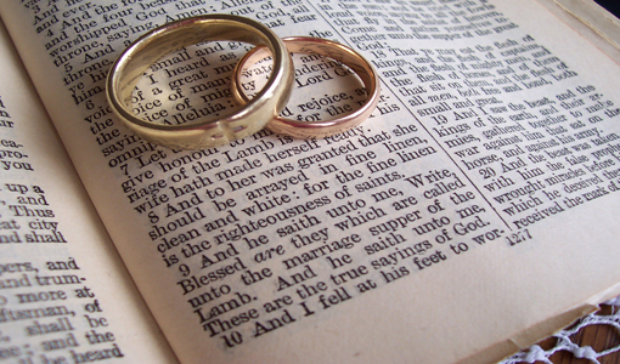Archbishop Van Thuân concluded his speech at St. Thomas with an answer to a question about his 13 year imprisonment in Vietnam following the Vietnam War.
Question from audience: “Could you speak about your experience in prison about how one should relate to those who seem to be one’s enemy?”
Archbishop Van Thuân: “When I was in prison, there were five people from the security forces charged with guarding me who later became my friends. Before they were very hostile; afterwards they became my friends.
And you ask me how they became my friends because I asked myself, “What can I do for them?” I am a pastor. Even in a prison, I am a pastor. And what can a pastor do in such an impossible situation? It came to my mind: if you can do anything, you can love them. You must love them as Jesus loves you. And so I decided to love them.
I began to talk to them. And in the beginning they said only “yes” or “no.” They avoided talking to me. But I told them about my visits to many countries, when I was a bishop and a student, to the Holy Land, to Luxembourg, to Austria, to Japan, to America, to Montreal, to the Philippines, Korea and so on. And it excited their curiosity and they began to speak to me.
So I answered them and insensibly they became my friends. They asked me to teach them French. And some of them studied Latin which was organized by the government. The communist guards know more Latin than our seminarians because they needed to read cables sent by Rome to our bishops. From Rome we send cables to our bishops. We think the communists don’t know Latin, but they know Latin.
"What can a pastor do in such an impossible situation? It came to my mind: if you can do anything, you can love them. You must love them as Jesus loves you. And so I decided to love them."
And so, when I became friends with them, they told me the truth, “Before, when they sent us to guard you, the government told us, ‘We are sending you to guard him, but we will change you five every two weeks, because if you stay with this dangerous bishop he will contaminate you.’’’And their boss followed them to monitor their reactions and after watching they said, “Now we won’t change you anymore. You stay on with him as long as he is in prison because if we change you every two weeks this dangerous bishop will contaminate all the policemen.” And so this friendship continues. They were with me more than seven years.
One day I had to cut wood and I asked one guard, “Let me cut a piece of wood in the form of a cross.”
But the guard said, “It is forbidden—any religious sign. You will be punished.”
“But I will hide it,” I said.
And he responded,“If you do that, I will be punished as you!”
“So close your eyes,” I said, “and let me do it.
Because we are friends. He couldn’t resist. He went away and left me alone and I cut the piece of wood. And I hid it in a piece of soap until I was free.
In another prison I asked my guard, “Help me. Give me a piece of electric wire.”
He told me, “Are you going to commit suicide?”
“No,” I said, “I am not going to commit suicide.”
Afterwards he said, “But what can you do with electric wire.”
“I can use that to make a chain to wear my cross.”
He asked, “How can you make a chain with electric wire?”
“Let me show you.”
A few days later he came and said, “You are my friend. I can’t resist you anymore. So I will bring you the piece of electric wire tomorrow night and we must finish it in four hours. From seven to eleven.”
And we measured it and cut it in pieces like matches. I had forty pieces and little pincers and in four hours we finished the chain.
It means we changed from hate, from hostility to friendship, to brotherhood, because Christ is in the middle of us. Because of the authentic love of Jesus Christ. And only with this love of Christ, forgiveness and reconciliation we can change the world. Not with weapons or bombs or interest or money but only with the sincere love of Jesus Christ. This love is irresistible. It is my conviction, and for that it does not cost anything. It recalls me always to love others as Jesus loves me.






